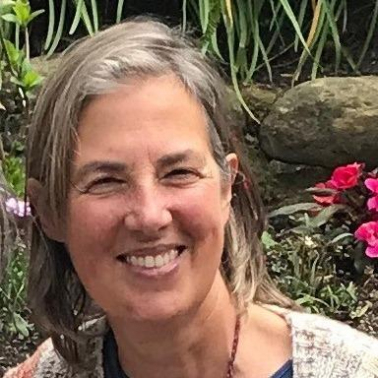
A big challenge for small farmers is the cost of assessing and measuring their carbon sequestration, as he and Charlotte Piccoli (left), an environmental engineer from Paris, emphasized. Microfinance was supporting farmers in places around the world such as the Sundarbans of West Bengal, where farmers breed honeybees and where Earthbanc can provide finance to expand bee keeping and mangrove restoration of blue carbon (carbon capture by the world's oceans and coastal ecosystems). ‘Regenerative farmers need to access funds at much cheaper rates of interest,’ Duncan said, and carbon payments can subsidise the transition to sustainable farming.

